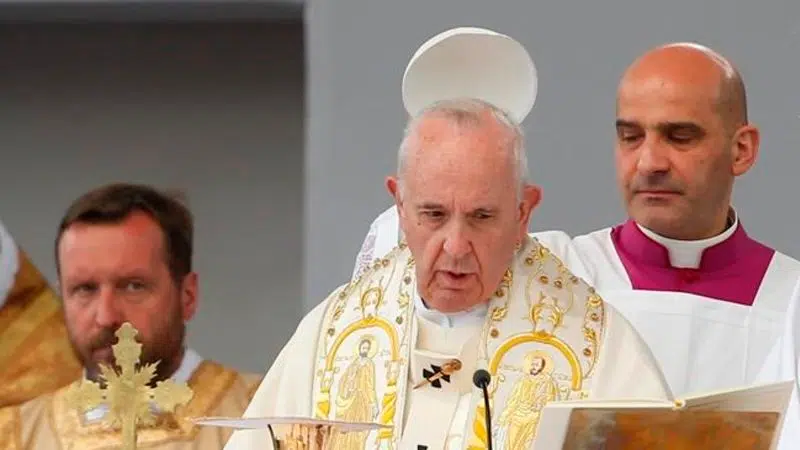
Pope in Bulgaria says refugees need love; Orthodox stay away
SOFIA, Bulgaria — Pope Francis told refugees Monday in Bulgaria’s showcase refugee centre that they are bearing the “cross of humanity,” as he pressed his call for the migrant-skeptic Balkan country to welcome poor and desperate foreigners with love.
On his second and final day in Bulgaria, Francis sought to encourage both refugees and the tiny Catholic community here, celebrating the sacrament of First Communion for nearly 250 children.
But his efforts to warm relations with the Bulgarian Orthodox Church appeared to stall, as religious leaders stayed away from a peace meeting he convened and one powerful metropolitan called his visit “an attack on Orthodoxy.”
